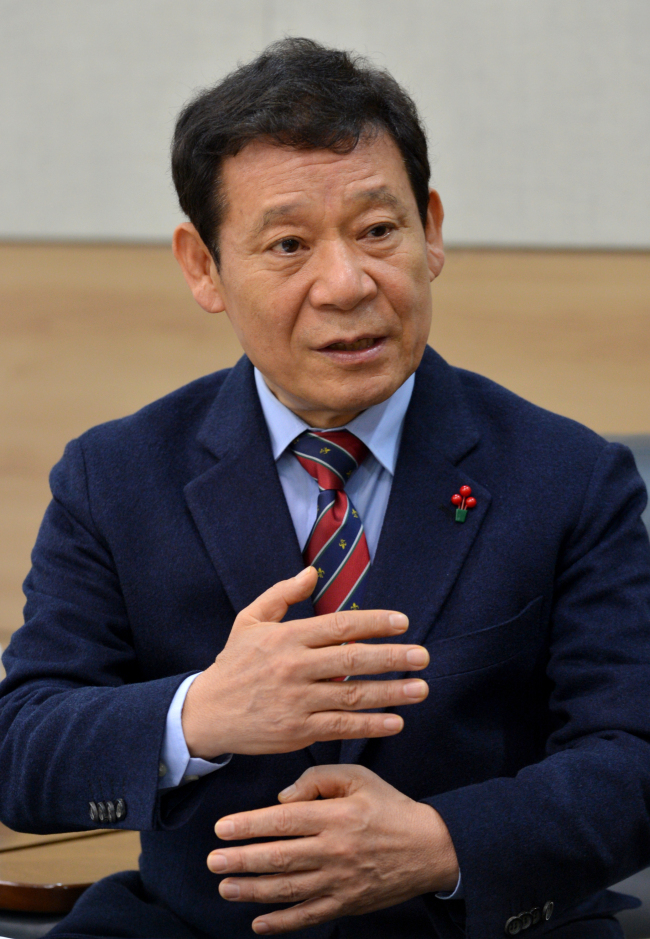With 60 days to go until the 2015 Summer Universiade in Gwangju, Korea, its organizing committee is putting the final touches on the city’s infrastructure, logistics, security and cultural programs for tens of thousands of visitors to the games.
Under the slogan of “Light Up Tomorrow” and the concept of “Eco-friendliness, Peace, IT and Culture,” Yoon Jang-hyun, president of the Gwangju Universiade Organizing Committee, said the games will be run as efficiently and uniquely as possible.
The GUOC chief said the sporting event will not only raise the economic status of South Korea, but also help pave the way for it to develop friendlier relations with North Korea.
“The significance of the Gwangju Universiade will be doubled as it will give a chance for the young from the two Koreas to gather at the games,” said Yoon, also the mayor of Gwangju, in a written interview.

GUOC chief Yoon Jang-hyun
“We will ensure that the Summer Universiade will be the games of peace that will help the young become next-generation world leaders.”
Backed by the International University Sports Federation, North Korea will join South Korea in the torch relay and cheering. Pyongyang is expected to send 108 athletes to the University Games.
The Gwangju Universiade, which is expected to accommodate 20,000 participants from over 170 countries, will kick off on July 3 with an opening of “U are Shining,” directed by Korean musical director Park Myeong-seong.
The Universiade’s slogan and opening ceremony are in line with the United Nations designating 2015 the International Year of Light.
In addition to making the Universiade “simple and peaceful games,” Yoon added that the GUOC will make sure that it will be safe for athletes and world citizens.
Also, it will help Korea see economic returns.
“This won’t be a one-time event, but it will help boost Gwangju’s insufficient infrastructure and regional development,” Yoon said.
“We will seek to run the games successfully to become a model for the sporting industry.”
The Bank of Korea reported that the Universiade will create 33,000 jobs with the production value of 3.7 trillion won for Asia’s fourth-largest economy.
South Jeolla Province and Gwangju are expected to see benefits of job creation of 20,000 and 1.9 trillion won in production, the GUOC noted.
The biannual Universiade, which is only second to the Olympic Games, consists of 10 compulsory sports with 13 disciplines and up to three optional sports chosen by the host country.
China had a record number of 10,622 participants in Shenzhen in 2011, and Daegu had 174 countries join the University Games in 2003, according to the FISU.
By Park Hyong-ki (hkp@heraldcorp.com)



![[Grace Kao] Hybe vs. Ador: Inspiration, imitation and plagiarism](http://res.heraldm.com/phpwas/restmb_idxmake.php?idx=645&simg=/content/image/2024/04/28/20240428050220_0.jpg&u=)

![[Herald Interview] Mom’s Touch seeks to replicate success in Japan](http://res.heraldm.com/phpwas/restmb_idxmake.php?idx=645&simg=/content/image/2024/04/29/20240429050568_0.jpg&u=)
